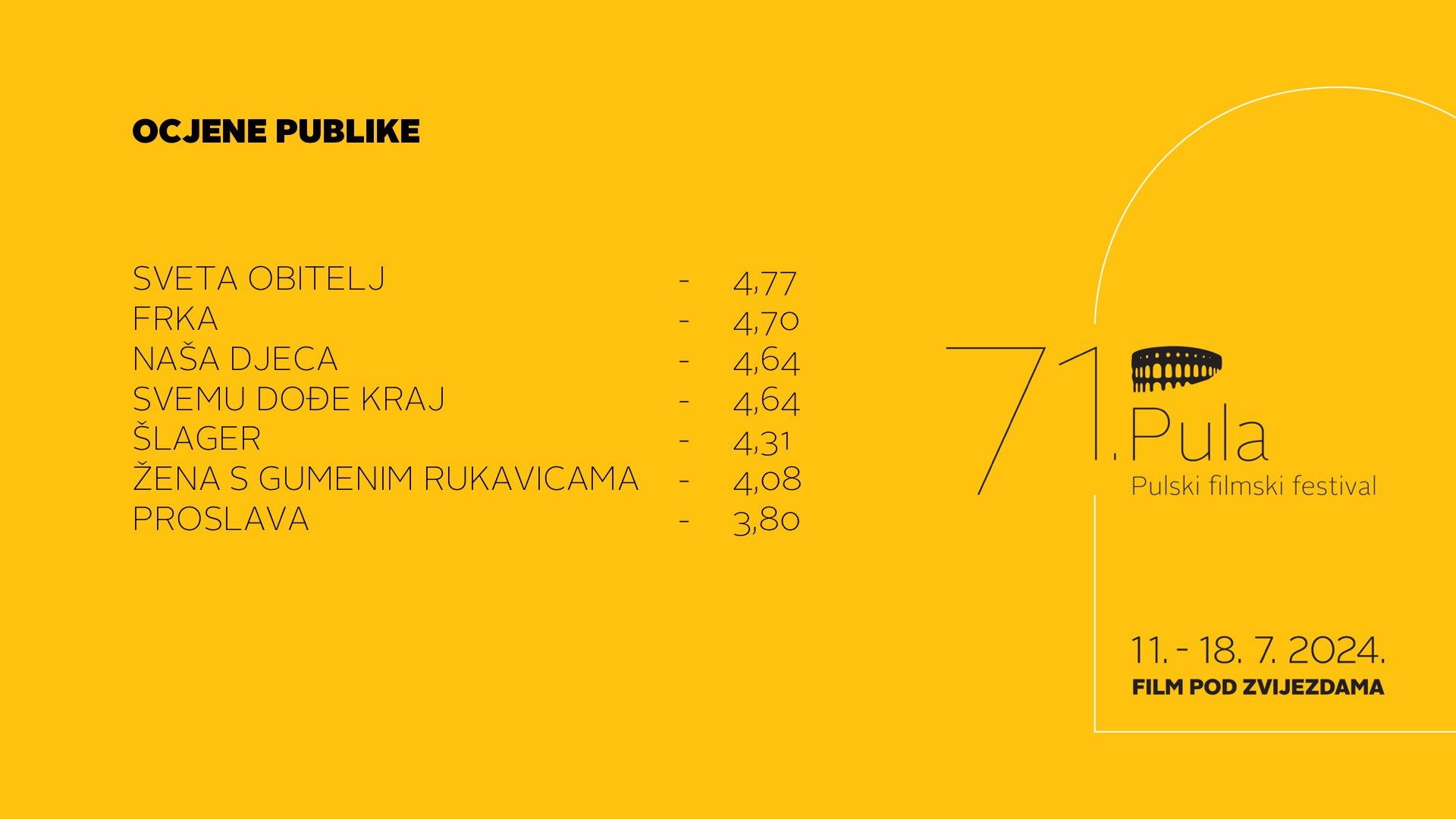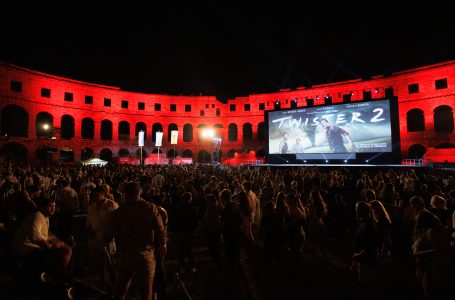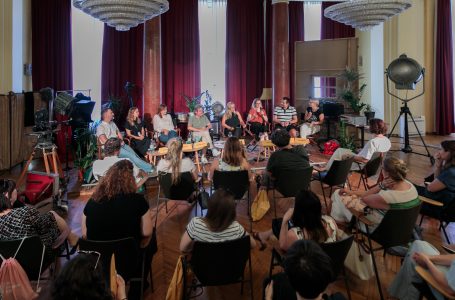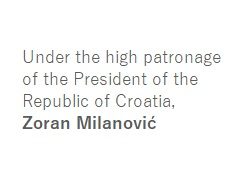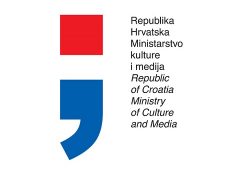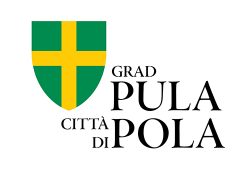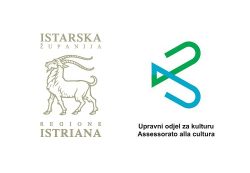Exciting change in audience scores, a day of Slavonia, filmmakers talk about festivals
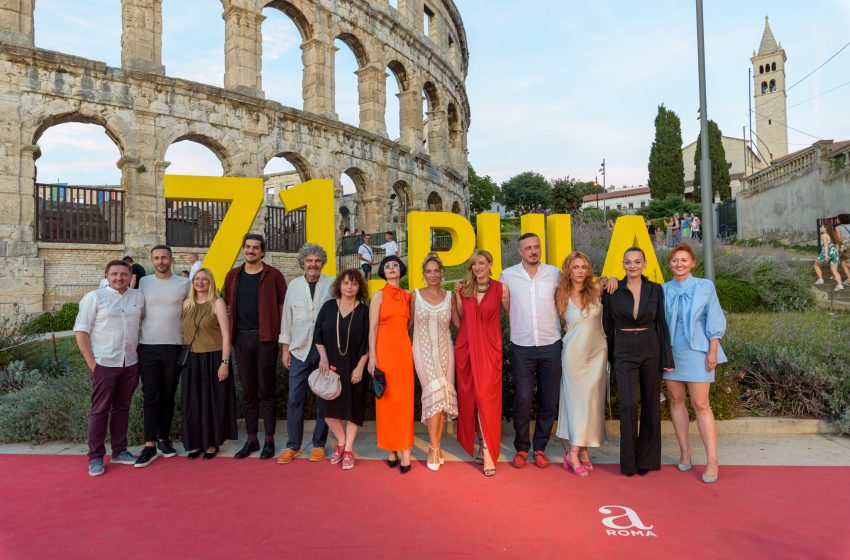
CONVERSATION WITH THE FILM CREW OF THE WOMAN WITH THE RUBBER GLOVES
The Woman With the Rubber Gloves, directed by Mario Šulina, was screened at the Istrian National Theatre, and the morning after, the director, actresses Areta Ćurković and Sandra Lozančić, and costume designer Zdenka Lacina Pitlik came to the conversation about the film. Following the major strike of teachers in 2019, Franjo Nagulov, professor of Croatian Language, wrote the screenplay reflecting on the events, and Mario Šulina mae it into a film about the educators, and the administrative and technical staff of s school in Slavonia. “We managed to make the film with a film crew that is 100% Slavonian,” said the director and emphasised that the story is universal and recognisable. He shot the film in the elementary school he used to attend in Đakovo. Lead actress Areta Ćurković said: “In my head, I had a version of Mirna I wanted to show, a kind of woman I want to fight for”, and added there are a lot of women around us with stories like this one. “We made beautiful films under guerrilla conditions,” said actress Sandra Lončarić, voicing her disapproval of the low-budget character of this film, but also other films from Slavonia at this year’s Pula Film Festival. Costume designer Zdenka Lacina Pitlik emphasised how each of the actors gave their ideas for the costumes. “I listened to them a lot, I thought about it a lot, and so this is all a result of a joint effort,” she said.
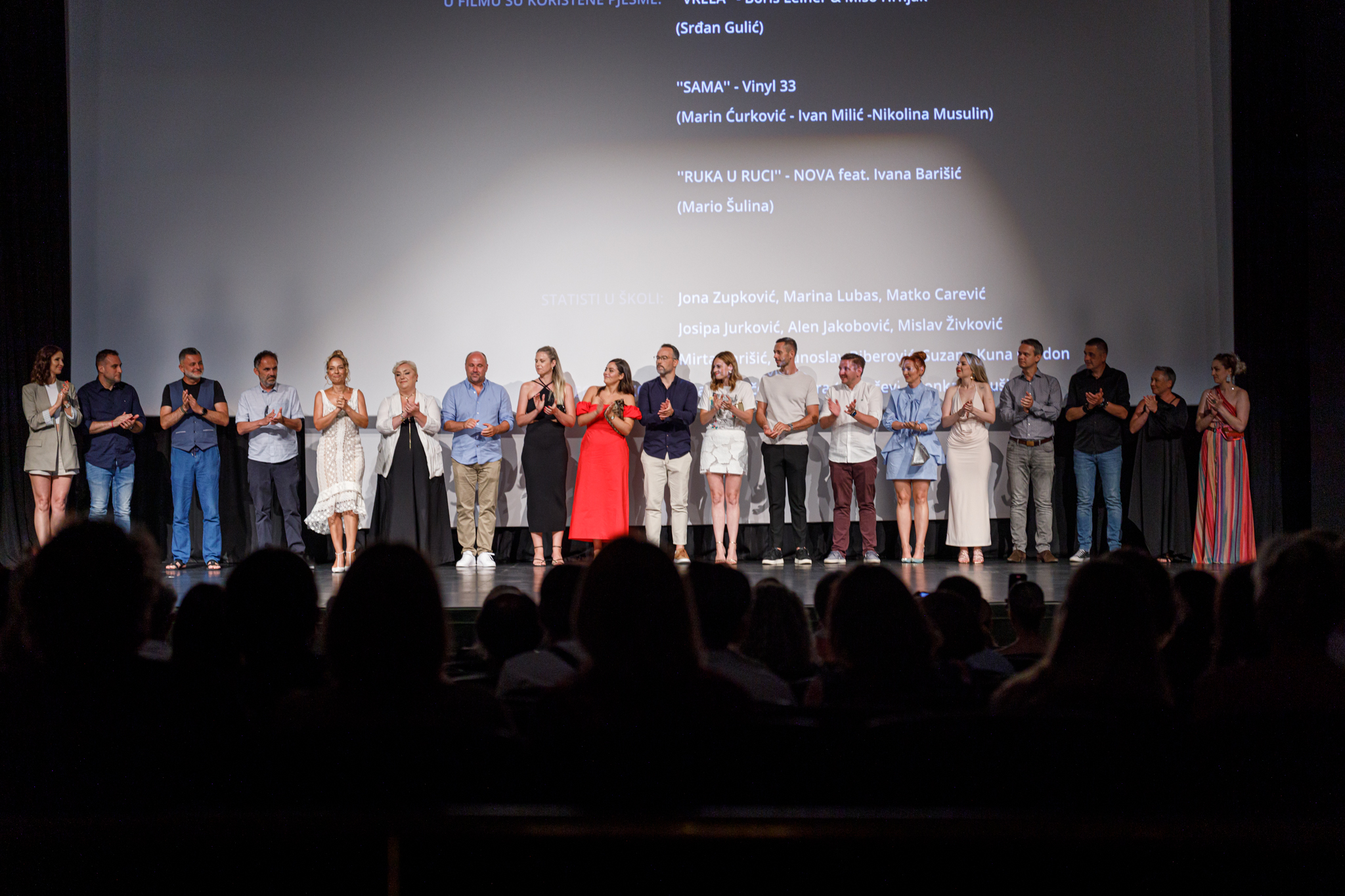
CONVERSATION WITH THE FILM CREW OF THE HOLY FAMILY
Another film with a central theme of criticising the patriarchy, presented at the Arena in Pula, is The Holy Family. At the conversation with the film crew the following day, director Vlatka Vorkapić, actresses Judita Franković, Luna Pilić, Sandra Lončarić, Anita Matić Delić, and actor Aleksandar Cvjetković spoke about the film. Vlatka Vorkapić revealed that the idea came from a true story that happened in Slavonia, which also explains why she chose Slavonia as the location. “At one point, I started looking at Janja as a human being, separate from myself, because there are Janjas, there were at that time, there are Janjas now, and I feel a huge need to protect them by telling stories like this on film and in theatre and speaking about the taboos,” said actress Luna Pilić. To be as true to the character as possible, Luna Pilić spoke to the Zagreb psychologist Marijana Senjak, who is also head of Ženska soba, an association that helps women who have suffered sexual abuse, and who has helped her in a lot of things. Anita Matić Delić said her inspiration for the role of the mother was a story from her own life and the relationship between her mother and her mother-in-law, which is permeated by strong Catholic upbringing. “It was a big challenge for me to portray the woman who is also a victim in all this, and who is a warm person, but had to suppress it,” she said about the preparation process. All of the actresses at the conversation agreed they were shocked when they had read the screenplay, and that it was challenging to master the dialect of Slavonian ikavica. They emphasised that the long preparations were especially significant for them and that it was a process of great kinship and understanding as they could all relate to the theme.
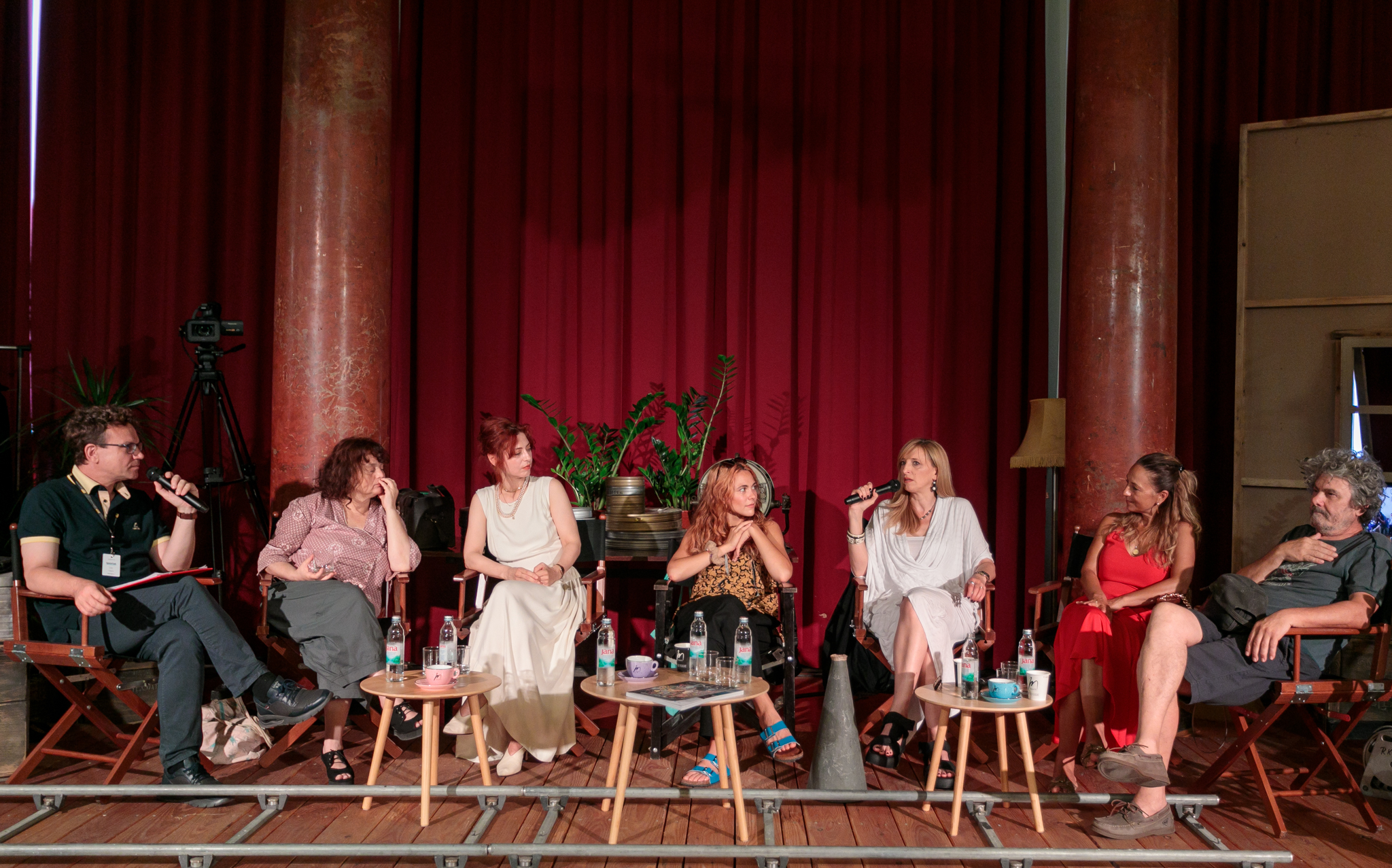
HIGH NOON
In the fourth critics’ duel, on Monday 15 July at the Festival Centre, film critics Zrinka Pavlić and Marijana Jakovljević spoke about the film The Woman With the Rubber Gloves and The Holy Family. The critics’ duels are moderated by Boško Picula.
AUDIENCE SCORES
CRITICS’ SCORES
Along with the expert jury and the audience, films from the Main Programme are scored by a part of accredited film critics and journalist from the field of culture, with scores of 1 to 5. We present the critics’ score up to now, but with a caveat – at the time of making the ranking list, a par of the scores had not come in yet, which means that the average score is susceptible to change.
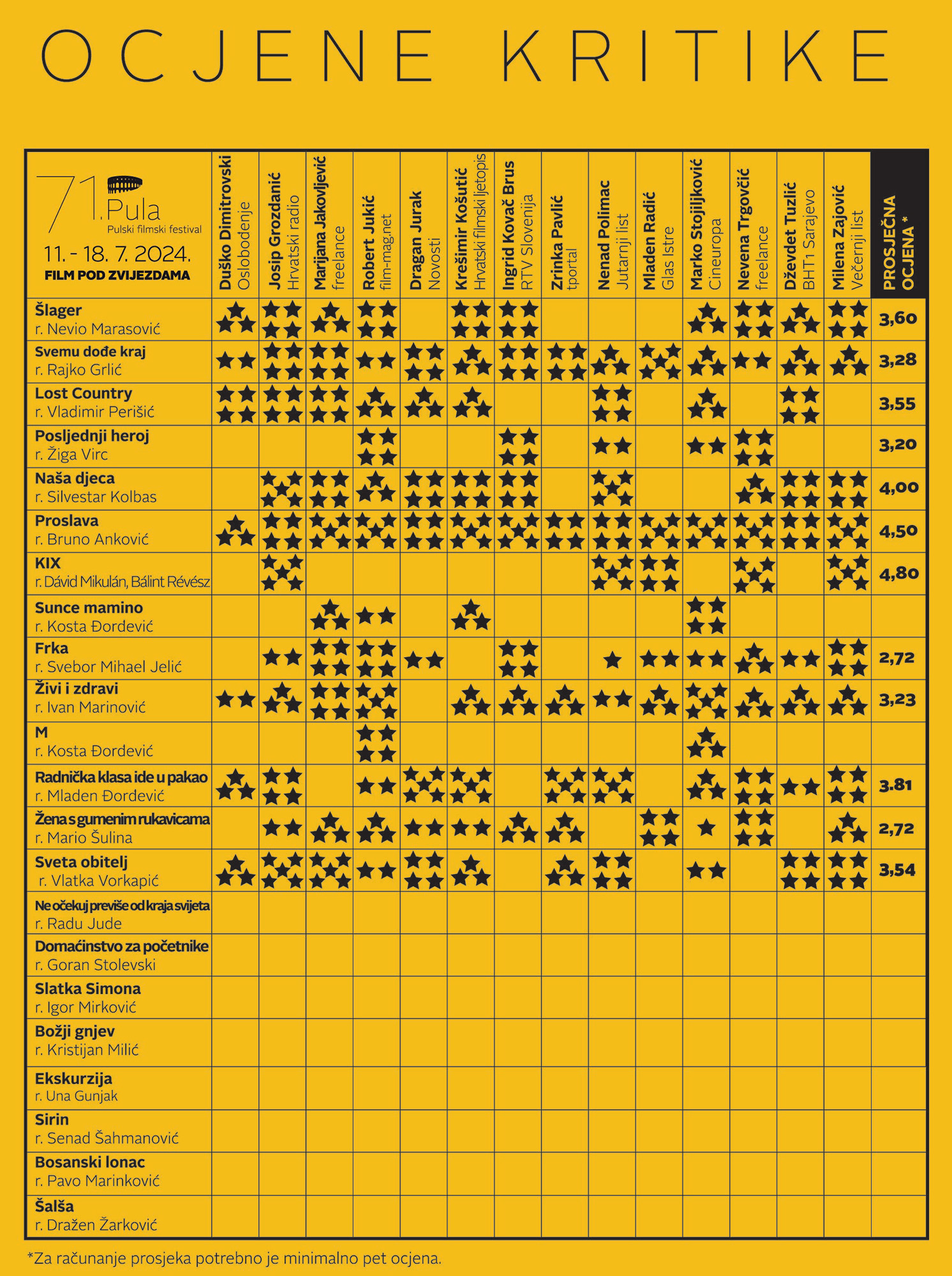
MINORIOTY CO-PRODUCTIONS
At this year’s Pula Film Festival we will see a total of 11 films from the Minority Co-productions section, which is a part of the main competition programme. We have made a short video with our selector Mario Kozina, producer Ankica Jurić Tilić, who presented as many as five of her films from the programme, and director Mladen Đorđevič, who presented the film Working Class Goes to Hell.
PULA PRO: ROUND TABLE ABOUT FESTIVALS
At the round table Pula Film Forum: One for all – Croatian film at international festivals, answering the general question of visibility of film, Stefan Ivančić, film selector at Locarno Film Festival and Auteur Film Festival, said: “One of the sids of festival programmes is to identify the best films, but there is also the idea of taking into account the diversity, and I couldn’t say where we belong – whether we are European film that dominates the festival landscape.” Producer and film selector Nicola Marzano warned about weaker regions like Croatia simply produce less films than, for example, France. “The question is how to make sure that the producers and audience are connected. It is the responsibility of the festival, in the sense that they have to find the films, but it is also the responsibility of the filmmakers and the industry as a whole,” he said and added: “The void needs to be filled by connecting, conversing, and of course, watching as many films as possible.” The conversation continued with the topic of the presence of international selectors on the home field with the goal of getting to know local film production and better understanding of the social and cultural context in which the authors make the films.
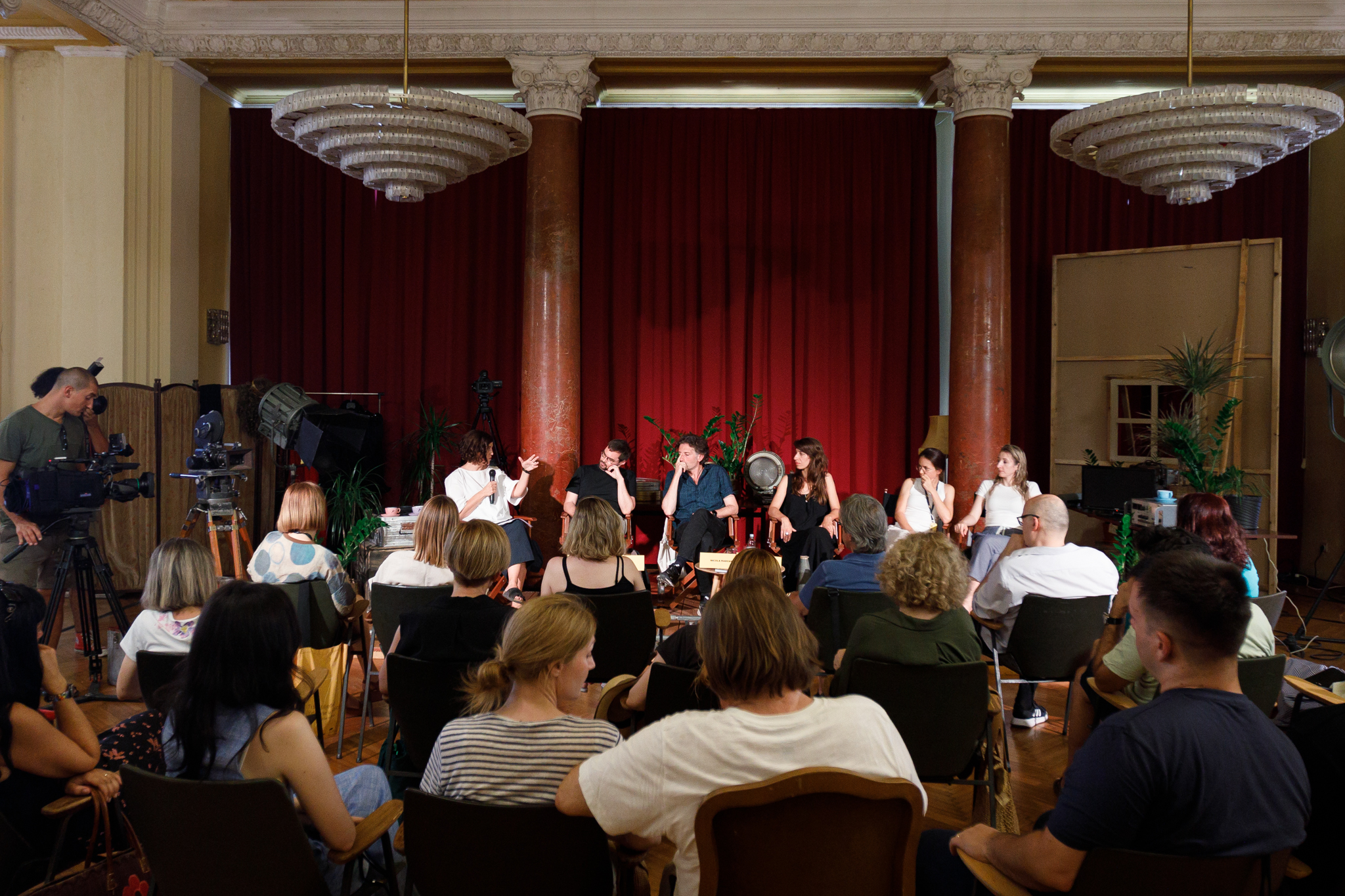
Producers Katarina Prpić and Marija Stojanović spoke about examples from practice. “In the last four years, sales agents feel it is too risky to invest in countries like ours, and it is often the case you can’t find a sales agent. The landscape has significantly changed”, said Stojanović. Prpić is the producer of The Man Who Could Not Remain Silent, a film by Nebojša Slijepčević awarded in Cannes, and says things are different with short film: “The stakes as not as high. We had a sales agent when we came to the Festival, the French company Manifest, but I can’t say whether that had made any difference. However, if I have a choice, I always choose to have a sales agent.” Irena Jelić, head of the Department of Festivals and Promotion at Croatian Audiovisual Centre (HAVC), spoke about the role of the film centre in representing films and lobbying for festivals: “Our key task is to catalogue all Croatian films in different production phases, so that they are ready when inquiries from festivals and selectors come in,” said Jelić and added that in-person contact and networking are key in this business. The conversation was moderated by producer Miljenka Čogelja.
CINEMA 15+ AT AMBRELA BEACH
Cinema15+ is a team of young cinephiles who run a successful film programme at Valli Cinema during the year, mostly modern classics and aimed at youth and all those who feel young. At Pula Film Festival, at 9.30 p.m. on Wednesday 17 July, they will screen their short films at Ambrela Beach. The authors of this programme never wanted to only watch films, and have made a number of their own short films, and will screen a selection of five of their short films at the Festival. They also have three guests – three young authors from Pula – who are not members of Cinema15+ team, but are friends of the programme. Programme announcement:
BOOK: FILM FESTIVALS
“If there is anything that appeals to a wider audience, it is film festivals,” said Nenad Dukić and the presentation of his book Film Festivals, emphasising that he tried to make his book for the broader readership and audience, even though it is primarily aimed at students and film professionals. As Dukić says, film festivals are complex artistic, cultural, and sociological phenomenon. He analyses the concept of film festivals from the standpoint of film as film, then film industry, which implies production, distribution, and screening of films, then festival programming, the relationship between festivals and audiences, which changes in comparison to the relationship between the films and cinema audiences, and also film festivals and the film industry. “There are a lot of other things as well: film festivals and the medial, film festivals and fashion, the red carpet, and so on. It is a complex organism that requires minute, artistic and cultural organisational cooperation of a number of people to be successful,” he said. In his book, Dukić also mentiones Pula Film Festival, which used to be the most important festival in Yugoslavia, with key selectors of various other festivals coming to Pula, especially selectors from Venice, which is a great continuation after Pula. International film critics also came to Pula, and all of that together, with the Arena and especially the dedicated audience in Pula, created a positive festival myth. After the 1990s, the concept went through changes, and the number of films in Pula was reduced, then a very good solution was found in enriching the programme with co-productions, which means that the festival gains in significance for both the domestic and the wider region audience, and strengthens one of its primary purposes, which is networking, interest for films, and promotion,” he concluded.
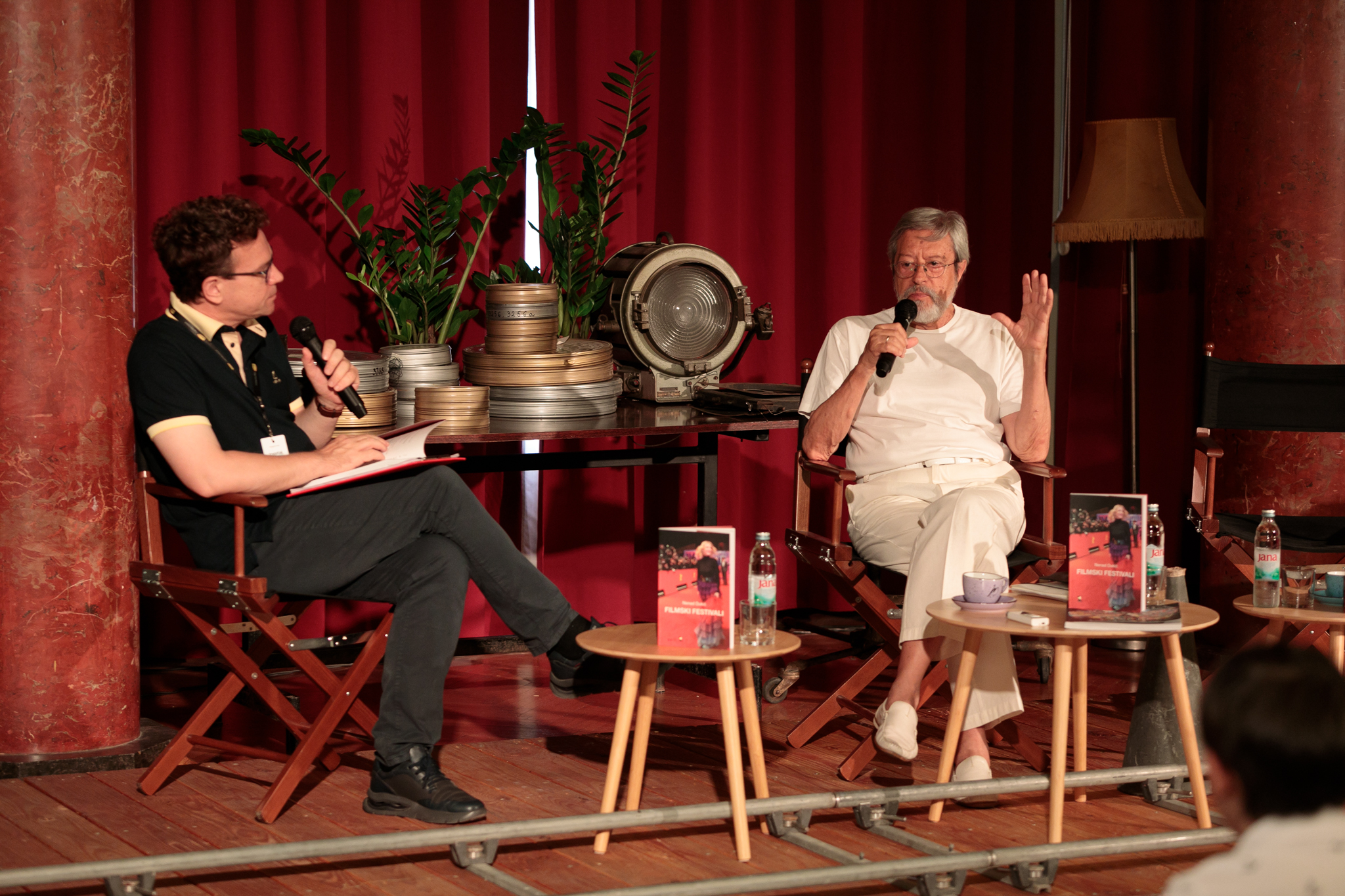
TUESDAY AT THE FESTIVAL – JULY 16
10 a.m. • PULA PRO • Work in Progress • Valli Cinema
10 a.m. • CONVERSATION WITH THE FILM CREW • Sweet Simona, 2024, directed by Igor Mirković • Festival Centre – Home of Croatian Veterans
10.30 a.m. • CONVERSATION WITH THE FILM CREW • The Wrath of God, 2024, directed by Kristijan Milić • Festival Centre – Home of Croatian Veterans
11 a.m. • BOOK PRESENTATION • Words Behind Images: Reproduction of Storyboards of Croatian Film Classics from the Collection of Croatian State Archives – Kaya!, 2024, Croatian State Archives • Festival Centre – Home of Croatian Veterans
11 a.m. • MAIN PROGRAMME: MINORITY CO-PRODUCTIONS • Excursion, 2023, directed by Una Gunjak • Istrian National Theatre
12 p.m. • HIGH NOON – critics’ duel • Sweet Simona, 2024, directed by Igor Mirković + The Wrath of God, 2024, directed by Kristijan Milić • Festival Centre – Home of Croatian Veterans
12 p.m. • PULA PRO • Screenplay of a Blockbuster • Valli Cinema
1.30 p.m. • AWARD CEREMONY • Nikola Tanhofer Award • Festival Centre – Home of Croatian Veterans
2 p.m. • RERUN • Sweet Simona, 2024, directed by Igor Mirković • Istrian National Theatre
2 p.m. • STUDENT programme • Grand Prize, directed by Anja Koprivšek | The Last Day of Spring, directed by Jan Krevatin | Dead Knot, directed by Ismira Mašić | Window from the South, directed by Eugen Bilankov • Valli Cinema
3 p.m. • ROUND TABLE • Is there life after the premiere? (distribution and cinema exhibition) • Festival Centre – Home of Croatian Veterans
4 p.m. • RERUN • The Wrath of God, 2024, directed by Kristijan Milić • Istrian National Theatre
4 p.m. • MAIN PROGRAMME: MINORITY CO-PRODUCTIONS • Sirin, 2023, directed by Senad Šahmanović • Valli Cinema
6 p.m. • TIME MACHINE • Kaya!, 1967, directed by Vatroslav Mimica • Valli Cinema
7 p.m. • MAIN PROGRAMME: CROATIAN FILM • Bosnian Pot, 2023, directed by Pavo Marinković • Istrian National Theatre
8 p.m. • GREATER ADRIA • La Chimera, 2023, directed by Alice Rohrwacher • Valli Cinema
9.30 p.m. • MAIN PROGRAMME: CROATIAN FILM • Summer Teeth, 2024, directed by Dražen Žarković • Arena
9.30 p.m • RERUN • The Wrath of God, 2024, directed by Kristijan Milić • Brijuni Islands
9.30 p.m • AMBRELA BEACH• Cricket and Antoinette, 2023, directed by Luka Rukavina • Ambrela Beach
10.20 p.m. • RERUN • Excursion, 2023, directed by Una Gunjak • Valli Cinema
11 p.m. • CONCERT • Baby Lasagna • Festival Centre – Home of Croatian Veterans
11.35 p.m. • POPULAR PULA • Twisters, 2024, directed by Lee Isaac Chung • Arena

